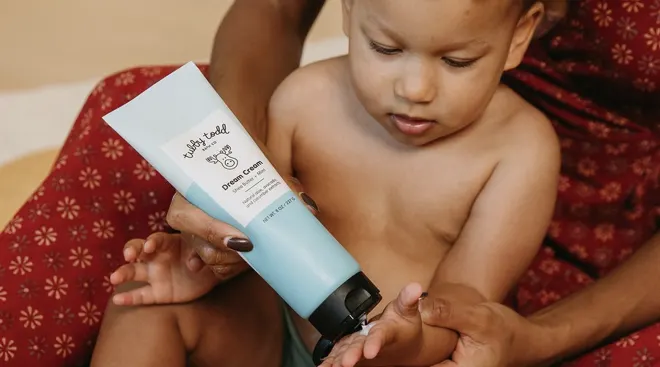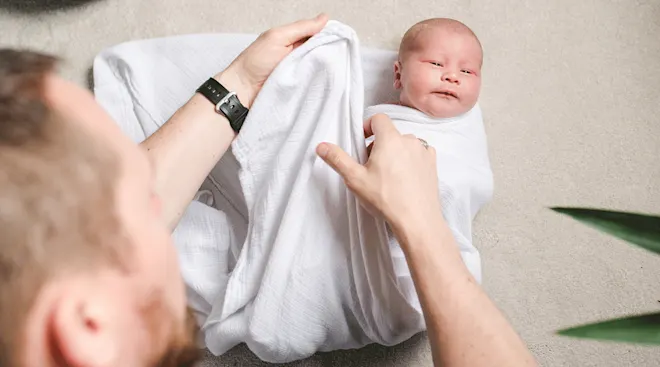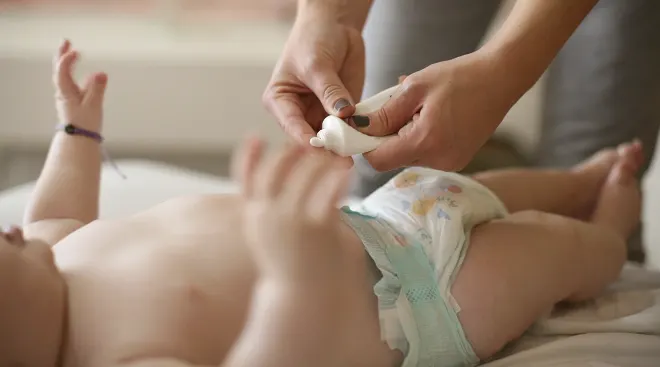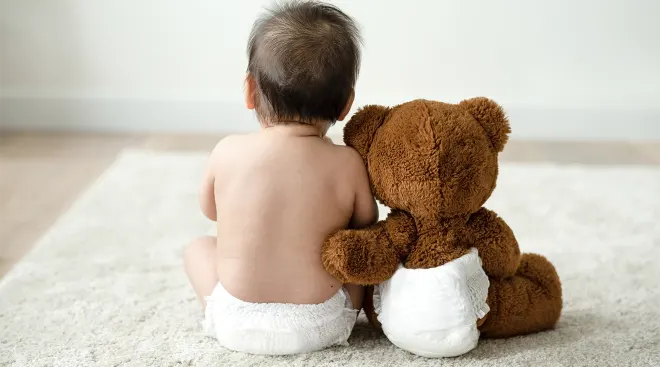How Your Hair and Skin Change After Giving Birth
Those first few months after having baby are usually filled with stress, sleepless nights, and lovely hormonal changes (yay!) that may or may not affect your skin and hair. Don’t worry, this doesn’t mean they’ll never return to the way they were. But if you’re starting to notice some major postbaby changes, be aware that you’re not alone and prepare yourself for how to deal.
Solving the skin problems
While some moms find themselves saddled with oily skin, others wind up with dry and flakey postbaby skin. Moms with oily skin should turn to oil-free makeup and toners (check out Shaklee’s Minerelles line of natural-based makeup), try out new cleansers (two of our personal faves: Origins’ frothy face wash and Neutrogena’s Oil-Free Acne Wash pink grapefruit facial cleanser), and invest in tried-and-true blotters like Clean & Clear’s portable oil-absorbing sheets. Tip: If you’re in a pinch and on the go, stop at any restroom with a toilet seat cover dispenser and rip off a piece of the wax paper to blot away oil. Works like a dream—trust us.
For moms who are suddenly battling dry skin, try an oil-free moisturizer that will restore your skin without clogging your pores. Some of our favorite oil-free moisturizers are actually designed for moms-to-be but work just fine postpregnancy. Check out Basq’s Rebalancing Facial Cleanser, filled with micro exfoliants and made from exotic flower blossoms, or try the Complete E Cranberry Creme by Derma-E, which will restore your skin with natural vitamins.
Noticed any dark splotches on your face lately? Don’t freak out — these are caused by your body’s increase in melanin production (a skin pigment) and are totally normal. Eventually your melanin levels will return to what they once were, but it might be after baby is weaned from breastfeeding. You can help prevent this by staying out of the sun as much as possible and protecting yourself with a moisturizer or foundation that has sunblock in it. (Our pick: bareMinerals Complexion Rescue Tinted Hydrating Gel Cream—a moisturizer with SPF 30 that comes in 10 shades)
If you’re suddenly dealing with sporadic breakouts, try Beaute de Maman’s all-natural Face and Body Cream. Not only is it specially designed for combating blemishes, it’s also perfectly safe for both pregnant and nursing women.
Battling those stretch marks
While a whopping 90 percent of us will get stretch marks sooner or later, some are hit a little harder than others (and we can blame this one on genetics). Try to preserve your skin’s firmness and elasticity during and after pregnancy. We highly recommend Bella B’s Tummy Honey Stick, made with all-natural products.
Sprucing up that new-mommy hair
Another little-known postbaby fact is that most new moms actually lose their hair after giving birth. Before you freak out, remember that almost everyone goes through it and that it’s a natural result of your hormones trying to sort themselves out. While most nonpregnant women lose about 100 to 125 hairs a day, new moms often lose up to 500 hairs a day after delivery. True, it’s a hard thing to watch your hair fall out, but calm yourself with the thought that it will go back to normal in six months or so.
In the meantime, you can mask your thinning hair with some tried-and-true volumizing products like Bumble and Bumble’s Thickening Hairsprayor Frederic Fekkai’s Full Volume Mousse. Another trick is to blow-dry with a larger, round brush to add volume and give the illusion of a fuller head of hair (we love the Cricket Technique Thermal Ionic Brush #450).
Of course, if your postbaby skin or hair problems persist well beyond six months after delivery, it’s best to talk to your doctor and see if there may be any underlying medical issues causing your problems.
Please note: The Bump and the materials and information it contains are not intended to, and do not constitute, medical or other health advice or diagnosis and should not be used as such. You should always consult with a qualified physician or health professional about your specific circumstances.
Navigate forward to interact with the calendar and select a date. Press the question mark key to get the keyboard shortcuts for changing dates.




















































